Filter by
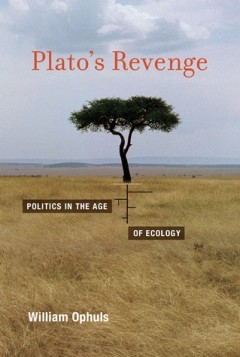
Plato's Revenge: Politics in the Age of Ecology
A provocative essay that imagines a truly ecological future based on political transformation rather than the superficialities of "sustainability."OCLC-licensed vendor bibliographic record.
- Edition
- -
- ISBN/ISSN
- 9780262298520
- Collation
- 1 online resource (xiv, 256 pages)
- Series Title
- -
- Call Number
- -
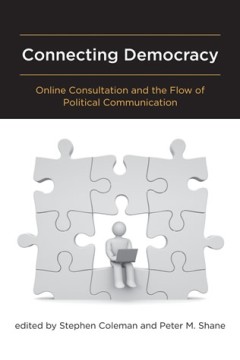
Connecting democracy :online consultation and the flow of political communica…
From the publisher. The global explosion of online activity is steadily transforming the relationship between government and the public. The first wave of change, "e-government," enlisted the Internet to improve management and the delivery of services. More recently, "e-democracy" has aimed to enhance democracy itself using digital information and communication technology. One notable example o…
- Edition
- -
- ISBN/ISSN
- 9780262298803
- Collation
- 1 online resource (ix, 423 pages)
- Series Title
- -
- Call Number
- -
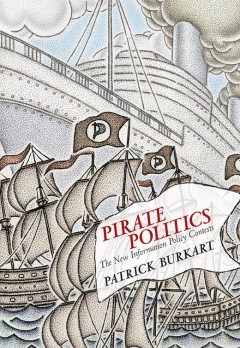
Pirate Politics: The New Information Policy Contests
An examination of the Pirate political movement in Europe analyzes its advocacy for free expression and the preservation of the Internet as a commons.OCLC-licensed vendor bibliographic record.
- Edition
- -
- ISBN/ISSN
- 9780262320146
- Collation
- 1 online resource.
- Series Title
- -
- Call Number
- -
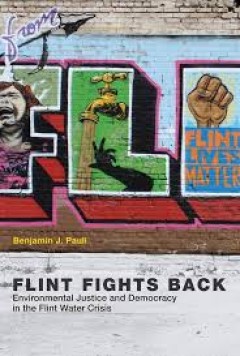
Flint fights back :environmental justice and democracy in the Flint water crisis
An account of the Flint water crisis shows that Flint's struggle for safe and affordable water is part of a broader struggle for democracy. When Flint, Michigan, changed its source of municipal water from Lake Huron to the Flint River, Flint residents were repeatedly assured that the water was of the highest quality. At the switchover ceremony, the mayor and other officials performed a celebrat…
- Edition
- -
- ISBN/ISSN
- 9780262352932
- Collation
- 1 online resource (432 pages) :illustrations
- Series Title
- -
- Call Number
- -
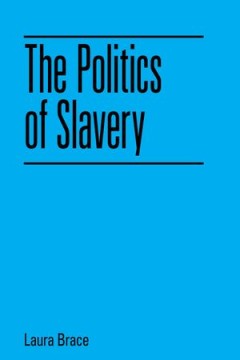
The Politics of Slavery
Looking at scholarship on both ‘old’ and ‘new’ slavery, Laura Brace assesses the work of Aristotle, Locke, Hegel, Kant, Wollstonecraft and Mill, and explores the contemporary concerns of human trafficking and the prison industrial complex to consider the limitations of ‘new slavery’ discourse.
- Edition
- -
- ISBN/ISSN
- 9781474401142
- Collation
- 240 halaman
- Series Title
- -
- Call Number
- 100 BRA p

Derrida After the End of Writing: Political Theology and New Materialism
This book explores some of the implications of interpreting Derrida through the new materialist lens of technicity or plasticity, attending to the significance of ethics, religion and politics in his later work. Here the intersection of religion and politics becomes the site for Derrida to develop a “political theology without sovereignty.” By reading Derrida from a new materialist perspect…
- Edition
- -
- ISBN/ISSN
- 9780823277834
- Collation
- -
- Series Title
- -
- Call Number
- 297.272

Web Campaigning
"The use of the Web in U.S. political campaigns has developed dramatically over the course of the last several election seasons. In Web Campaigning, Kirsten Foot and Steven Schneider examine the evolution of campaigns' Web practices, based on hundreds of campaign Web sites produced by a range of political actors during the U.S. elections of 2000, 2002, and 2004. Their developmental analyses of …
- Edition
- -
- ISBN/ISSN
- 9780262256148
- Collation
- 1 online resource (xxii, 263 pages).
- Series Title
- -
- Call Number
- -

A Theory of Regret
In A THEORY OF REGRET Brian Price takes up regret as a useful political emotion and, surprisingly, as a way to understand bureaucracy. Drawing on the work of Hannah Arendt, Aristotle, and Heidegger, as well as examples from film, Price presents a philosophical reflection on the transformative qualities of regret insofar as it provides opportunities to re-evaluate our commitments and to recogniz…
- Edition
- -
- ISBN/ISSN
- 9780822369363
- Collation
- 176 halaman
- Series Title
- -
- Call Number
- 100 PRI t
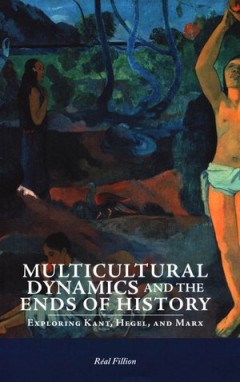
Multicultural Dynamics and the Ends of History : Exploring Kant, Hegel, and Marx
Multicultural Dynamics and the Ends of History provides a strikingly original reading of key texts in the philosophy of history by Kant, Hegel, and Marx, as well as strong arguments for why these texts are still relevant to understanding history today. Réal Fillion offers a critical exposition of the theses of these three authors on the dynamics and the ends of history, in order to provide an …
- Edition
- -
- ISBN/ISSN
- 9780776606705
- Collation
- 186 halaman
- Series Title
- -
- Call Number
- 300 FIL m

Adversarial Design
An exploration of the political qualities of technology design, as seen in projects that span art, computer science, and consumer products.OCLC-licensed vendor bibliographic record.
- Edition
- -
- ISBN/ISSN
- 9780262301350
- Collation
- 1 online resource :illustrations.
- Series Title
- -
- Call Number
- -
 Computer Science, Information & General Works
Computer Science, Information & General Works  Philosophy & Psychology
Philosophy & Psychology  Religion
Religion  Social Sciences
Social Sciences  Language
Language  Pure Science
Pure Science  Applied Sciences
Applied Sciences  Art & Recreation
Art & Recreation  Literature
Literature  History & Geography
History & Geography